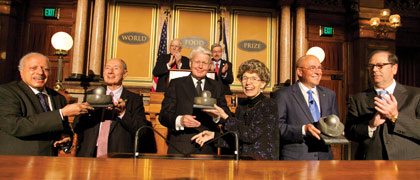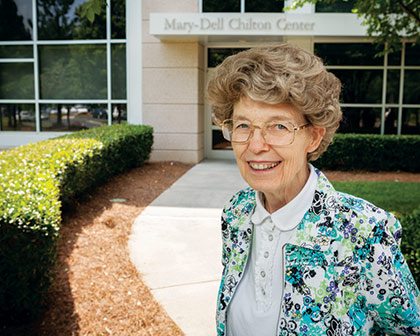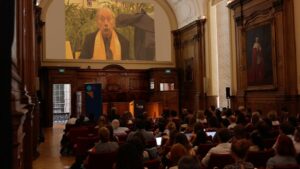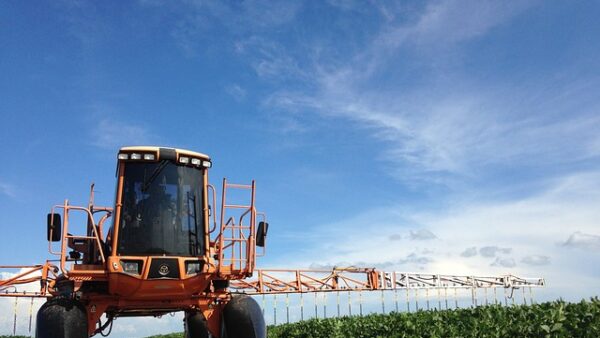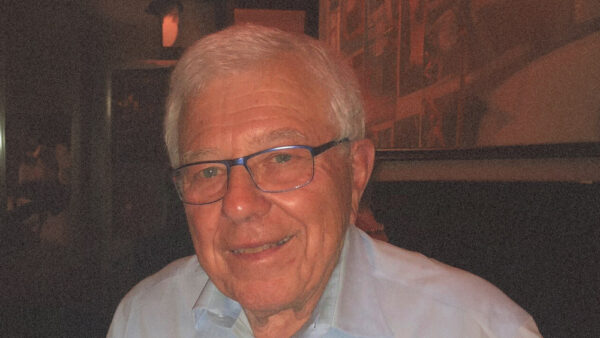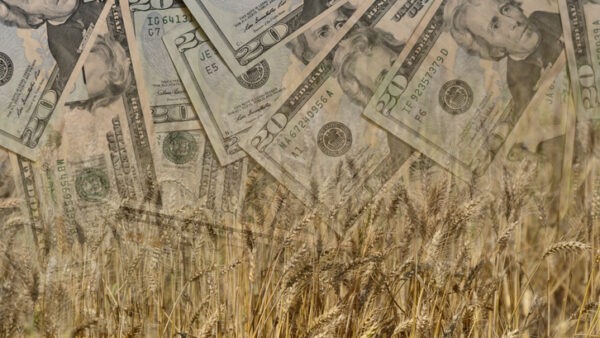2013 World Food Prize
Biotech pioneers recognized for landmark efforts to drive “Gene Revolution.”
In 1970, Norman Borlaug was awarded the Nobel Peace Prize for his lifetime of work dedicated to feeding a hungry planet. Seventeen years later, the founder of the “Green Revolution” created the World Food Prize to recognize others for their landmark achievements in increasing the quantity and availability of food around the world.
|
Mary-Dell Chilton, Ph.D., is founder and distinguished fellow of Syngenta Biotechnology. |

Robert Fraley, Ph.D., is executive vice president and chief technology officer at Monsanto. |

Marc Van Montagu, Ph.D., Em. Prof., is founder and chairman of the Institute of Plant Biotechnology Outreach at Ghent University in Belgium. |
In a ceremony Des Moines, Iowa, on Oct. 17, this year’s World Food Prize was awarded to Marc Van Montague, Mary-Dell Chilton and Robert Fraley—biotechnology pioneers whose ground-breaking discoveries helped unlock the key to plant transformation. Three decades ago, these three World Food Prize laureates led independent efforts to develop methods for putting foreign genes into the DNA of plants. Today, they continue their important biotech work and to speak out in support of the “Gene Revolution” that is transforming modern agriculture.
In exclusive interviews with Seed World magazine, the three 2013 World Food Prize winners shared their thoughts about receiving such a prestigious international award—and what this recognition means for the field of biotechology.
Seed World: What has being named a 2013 World Food Prize Laureate meant to you?
RF: Personally, there’s nothing more special than to be recognized by your peers and [everyone] involved in the world prize, who are some of the most important contributors to agriculture and food production in the world.
MC: It’s gratifying and humbling at the same time. It makes me think back to the all the colleagues who have worked with me throughout the years on the various projects to develop this technology. The award really is to a whole team of us, not just myself.
MVM: I am pleased that the Word Food Prize Foundation recognized that the “Gene Revolution” has already contributed sufficiently to receive this important award. Much more will come in the [coming] years. I’m grateful to the enthusiastic team of researchers who [made] it happen. The team at Ghent University is saddened that we could not share this moment with Jeff Schell, who passed away 10 years ago.
SW: It is our understanding that the late Norman Borlaug personally recommended that each of you be a recipient of this honor. What is it like to be held in such esteem by someone considered by many to be the most distinguished figure in modern agriculture?
MC: I have only this week learned of that story, and I have to say that it’s deeply humbling to hear that.
MVM: I was astonished and impressed, since I never had any personal conversation with him. I highly appreciate his support because Norman Borlaug was someone who knew agriculture so well. He also knew that science is not wishful thinking, but is instead about achieving hard facts and controls.
RF: It is a great honor. … He and I had done a lot of talks together and shared a lot of stages … bringing together the green and gene revolution stories. Norm was a strong advocate of technology and agriculture and feeding the world, and a lot of the things that we talked about have really shaped a lot of my own thinking and beliefs. … He really impressed on me how you’re going to get opposition on anything you do that matters, and you’ve just got to be prepared to push it even harder. That was a really key conversation for me, so it makes the award extra special to have that connection to Norm. … If I were to name anybody, he would be my personal hero.
SW: Did you suspect at the time, when developing the first technology to stably transfer foreign genes into plants, how important your findings could be to agricultural production worldwide?
MC: Never, Never. [Initially] I was interested in DNA and anything that DNA does, and we were interested in claims that this microbe called Agrobacterium puts DNA into plant cells and that it expresses there. And I started studying this because I didn’t believe it. I knew very well that foreign DNA wouldn’t be able to get into a plant cell, and certainly wouldn’t stay there, replicate and express. I just knew that based on all the things that I studied in school—and boy, was I wrong.
MVM: Our group in Ghent comes from fundamental research, so we were interested in the science aspect of crown gall induction. Since it was known that the nature of the Agrobacterium strain but not the host plant determined the synthesis of the novel compounds in these galls, we formulated the working hypothesis that it could be a gene transfer mechanism from the bacteria into the plant. Many were saying it was a fantasy. Once it was proven, we accepted the idea that applications for agriculture should be considered. Jeff Schell and I were cautious but optimistic enough to establish a startup company in Belgium—Plant Genetic Systems. That was a novelty because such startup companies in plant science didn’t exist in Europe. We had quite [the] success with that. We made the first Bt [Bacillus thuringiensis] plants and the first herbicide-resistant plants, and, particularly important, developed new ways of making male sterile plants for using hybrid vigor in a lot of other plants than it is normally used in. Those were three big successes we had immediately in the [1980s].
RF: Back in the 1980s when we were first thinking about putting genes into plants, I could not have imagined the broad success, the rapid global adoption, the far-reaching implications that biotech has brought into agriculture. To be fair, to balance that out, I wouldn’t have expected 30 years ago that we would still be addressing some of the rumours and the urban legends and some of the push back [about biotech] that we’re still seeing today.
I think we could envision a path [to] … bug and weed control, because we had the fortunate ability within Monsanto to focus on Roundup Ready as a technology and the Bt genes that have been important. I don’t want to trivialize those at all because bug and weed control are major challenges to farmers everywhere, but clearly now we’re looking at genes that increase yield, genes that provide for drought protection, and that’s taking it to a new level.
[What] I didn’t appreciate until maybe the mid-‘90s was how dramatically the biotech tools would change plant breeding. … Once you started to have the ability to sequence the genes in corn or soybean, and map them and use the information and technology tools, you literally can use those tools to breed faster and more precisely and create new combinations. You know, I always tell folks as the guy who started the biotech program in Monsanto, I would tell you that our biggest impact and our biggest legacy is how these tools have changed plant breeding. I mean the ways we breed crops today are completely different than what was possible only 10 years ago.
The 2013 World Food Prize being presented in Des Moines, Iowa, in October. Pictured left to right are: M.S. Swaminathan, the first World Food Prize laureate and now chair of the laureate selection committee; 2013 prize winner Marc Van Montagu; Olafur Ragnar Grimsson, president of Iceland; 2013 prize winner Mary-Dell Chilton; 2013 prize winner Robert Fraley; and John Ruan III, chair of the World Food Prize.
SW: The World Food Prize recognizes individuals who improve the quality, quantity or availability of food in the world. Does awarding this prize to three pioneers of biotechnology suggest the importance of biotech crops to future global food security and poverty alleviation?
MVM: [Biotechnology] will be and should be applied to the areas where it’s most needed. It’s to bring better living conditions to developing countries … [where] half of the world’s population —3.5 billion people—live on less than $2 a day. [Without using the products of biotechnology] we’ll never have a more just society. The board of the Borlaug Foundation decided to shout to the world that the [biotech] tools are there and should be used.
RF: It took a lot of courage [for the World Food Prize] to name biotechnology as one of the key technologies for global food security and recognize it that way, and I think that’s really important given some of the discussion that goes on around the pros or cons or the acceptance issues around biotech. … There’s a tremendous opportunity for dialogue … [and] to reset the discussion around the importance of innovation in agriculture and food production.
[Food security] from a U.S. perspective is generally around food cost, affordability and choice. In other parts of the world, you know it’s about survival and hunger. I think increasingly what we’re going to see is that food security and political stability are really crucial. … [A recent] article by Thomas Friedman … basically made the case that it wasn’t a coincidence that the revolution in Syria occurred right after their worst harvest ever. … When you think about the importance of food security, it not only takes on the context of cost and choice or hunger, but I absolutely believe that it’s very much tied to political stability.
SW: What role will biotech crops play in agricultural sustainability strategies in the future?
RF: I think the tools that are being developed both in terms of the biotech traits and the changes to breeding are going to be one of the absolute keys to enhancing ag productivity—both in the face of climate change and the continued evolution of the spectrum of pests that are out there.
We continually need to create new genetic combinations through breeding with better resistance genes and better tolerance to temperature, etc., and we’re going to need the new biotech traits to protect against drought, and increase yield, and improve photosynthetic efficiency, and all the other elements that are going to be part of that. … I don’t see how we meet those challenges for increased production, given the challenges ahead, if these tools can’t be fully utilized.
MC: I think that biotech will be one of the most valuable tools that the plant breeder will have in order to make the crops of the future. And the crops of the future are going to have even more challenges than the crops of the present and recent past have had. With climate change coming on, we’re going to have to have crops that can be grown under … many different kinds of conditions, and we’re going to have to have crops that are more resistant to pathogenic microbes and insects. … The biotech plant can defend itself against these problems, these pests, these pestilences, and I think these tools will be essential in order to feed that large population that is anticipated by 2050.
MVM: In the last 10 years there has been immense progress in our understanding of the hierarchy in the mechanism of gene expression regulation. We start to understand the role of DNA methylation and demethylation, and histone modifications on the gene response to environmental stress, or during growth and development in different soils and weather conditions. Such analysis will soon be affordable enough … that plant breeders in wealthy nations will be able to use them routinely. It is now up to the public sector to apply these novel tools to breeding of low acreage crops (orphan crops) in developing countries.
Mary-Dell Chilton established one of the world’s first industrial agricultural biotechnology programs, leading applied research in areas such as disease and insect resistance.
SW: How will awarding this prize to biotechnologists affect the perception and use of advanced breeding technologies and their products, such as biotech crops?
MC: I hope it will have a positive impact. We need to have as much good PR as we can muster, in the face of all the opposition to the technology. … [With the prize going to this field] it endorses the quality and safety of products we make. … I have been very happy that the World Food Prize chose to award the prize this year to biotechnologists, to the three of us, because it’s timely and it gives us the opportunity to articulate the value of the technology in the face of all the opposition that the press seems to mount against it.
RF: I believe it will, and I think maybe one of the most important implications of that is the next generation of scientists. You know there are a lot of people who are using these tools, but I think it takes courage to talk about biotech. … The fact that the World Food Prize recognizes the three laureates opens the door and also will encourage and support all of the future innovations that need to be created.
For my part I want to use that opportunity to really address the concern issues and talk through that at a level of candor and dialogue and directness that you know maybe we haven’t spoken to before about the technology, and try to reach that important middle ground. I am an optimist in that I believe the incredible innovations in agriculture can enable us to meet demand for food security, but it’s going to take all of these innovations … in biology and information technology. There’s no way that we can do it without these tools. And that’s where the discussion needs to be placed.
MVM: I can only hope it at least gives encouragement to the scientists to speak up more on the importance of GM technologies. Since 1987, the prize always went to traditional technology and never to biotechnology or to gene engineering. There is so much disinformation, even in the United States where there are so many important applications going on. The fact that it finally was [awarded to individuals in the field of biotechnology], that is important because the technology should be explained to society. … Putting GM crops in focus and showing how important biotech is for the whole planet is extremely important. Of course, there will be a lot of [negative] remarks, but at least it creates some encouragement for the scientists who for more than 30 years have contributed [in this area].
SW: Becoming a World Food Prize laureate could be considered the crowning glory of a long and successful career; however, what are you working on now and what excites you most about the field of biotechnology for the future?
RF: The largest selling product in corn in the U.S. now is called SmartStax that has eight different biotech traits. And I’m sure if we’re talking 10 years from now, the leading seeds are going to have 20 biotech traits. … There’s going to be a continued explosion of new biotech traits. I think, as I said earlier, these tools are really changing the productivity of breeding—we’re able to bring together and [develop] faster new varieties and hybrids based on using the markers and the mapping tools of biotechnology. … The tools of pure biotechnology and GMOs have really come together with the tools of breeding … to create very powerful ways of literally breeding crops gene by gene. And what the mapping and information and database tools are allowing us to do is understand literally how to optimize yield on every square metre of the farmer’s field.
As we think about the future for farmers, the advances in biology and the advances in information technology basically converge on the farm. That will be a major source of global yield productivity increase … when you can start to bring the power of the improved seeds together with the knowledge of the farm and the agronomy at a level of precision that had never been possible. … I think that convergence of biology and information technology [in] the next couple of decades is going to have just as dramatic an impact as what we’ve seen with the changes in biotech and breeding.
MVM: We are much closer to understanding what goes on in a cell. The new instrumentations based on ‘omics’ technologies bring us enormous amounts of information on signalling between tissues and between plant and soil microorganisms. The big challenge is to transform as fast as possible all these discoveries into innovations, so that society understands what the scientists are doing and why it’s important. This is my major concern.
MC: I enjoy what I do every day. I’m 74 years old now, and I still go to the lab and work almost every day of the week. … It’s still fun.
Mark Halsall



